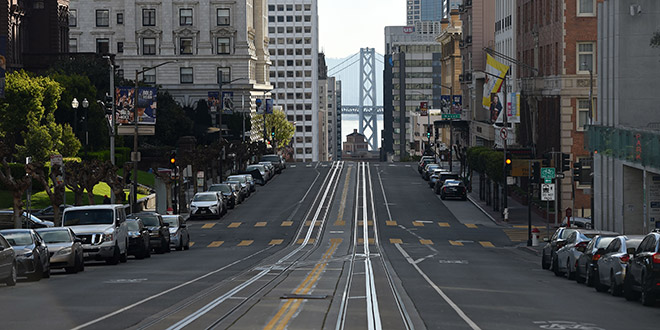Updated March 30, 2020: For a complete overview of how U.S. states and Canadian provinces are handling the COVID-19 pandemic, click here.
As the effects of COVID-19 touch every aspect of retail, cities and states across the U.S. are declaring home improvement stores “essential” and allowing them to remain open to continue serving communities.
On March 16, the North American Retail Hardware Association and leaders from several home improvement companies urged lawmakers to deem home improvement stores essential to public safety. Read the letter in full.
Alabama
Gov. Kay Ivey has declared a state of emergency, but hardware stores are permitted to continue operations.
Alaska
Gov. Mike Dunleavy has declared a state of emergency, but hardware stores are permitted to continue operations.
American Samoa
Gov. Lolo Matalasi Moliga has declared a state of emergency, but hardware stores are permitted to continue operations.
Arizona
Gov. Doug Ducey has declared a state of emergency and released a list of essential businesses in the state, which includes hardware and supply stores.
Arkansas
Gov. Asa Hutchinson has declared a state of emergency, but hardware stores are permitted to continue operations.
California
On March 19, Gov. Gavin Newsom issued an executive order stating all nonessential workers should stay home to stem the spread of the virus.
Hardware stores were exempted from the order and considered part of the state’s “essential infrastructure.”
Colorado
Gov. Jared Polis has issued an executive order mandating employers reduce in-person employees by 50 percent. The order exempted certain industries, including “emergency personnel and infrastructure necessary to ensure continuity of critical health care, government functions, public safety, manufacturing and supply chain operations.” Boulder and Denver have expressly permitted hardware stores to continue operations.
Connecticut
Gov. Ned Lamont has ordered nonessential businesses to cease operations from March 23 to April 22. Hardware stores were listed as essential businesses and allowed to continue serving communities.
Delaware
Gov. John Carney has issued a shelter-in-place order, but allowed residents to leave their homes to seek “products necessary to maintain the safety, sanitation, and essential operation of residences.” Hardware stores were permitted to remain open.
District of Columbia
Mayor Muriel Bowser has ordered nonessential businesses to close, but has permitted hardware stores to remain open to serve customers.
Florida
Gov. DeSantis has issued an executive order mandating bars, beaches, restaurants and other nonessential businesses to temporarily close. Hardware stores will continue serving their customers.
Georgia
Gov. Brian Kemp has issued an executive order requiring businesses to limit visitors to 10 people if “such a gathering requires persons to stand or to be seated within six feet of any other person.” A shelter-in-place order has been issued for people belonging to high-risk groups. At this time, hardware stores are permitted to continue operations.
Guam
Gov. Lourdes Leon Guerrero has issued an executive order that calls for the closure of some nonessential businesses. Hardware stores have been permitted to continue operations.
Hawaii
Gov. David Ige has issued a stay-at-home order for the state, permitting only workers “necessary to maintain continuity of operations of the federal critical-infrastructure sectors” until April 30. In the order, hardware stores were permitted to continue operations.
Illinois
Gov. J.B. Pritzker has ordered residents to stay at home. His office issued a declaration saying that nonessential businesses must cease operations. Hardware stores were permitted to keep their doors open to ensure customers had access to vital supplies to protect their properties.
Indiana
Gov. Eric Holcomb issued a stay-at-home order to Indiana residents, permitting only essential businesses to remain open. Hardware and supply stores will be deemed essential and remain open.
Kentucky
Gov. Beshear has issued an executive order mandating all nonessential businesses close. As of March 23, hardware and home improvement stores were considered essential and allowed to continue operations.
Louisiana
Gov. Jon Bel Edwards has issued a stay-at-home order for state residents, but has allowed hardware stores to continue retail operations.
Maryland
Gov. Larry Hogan has mandated all nonessential businesses be temporarily closed. No official guidance has been offered regarding hardware stores, but “farms, food manufacturing plants, pet supply stores and companies that handle agricultural equipment can remain open” according to The Baltimore Sun.
Massachusetts
Gov. Charlie Baker has encouraged nonessential businesses to temporarily cease operations until at least April 7. Hardware stores were listed as essential businesses and permitted to continue serving customers.
Michigan
Gov. Gretchen Whitmer has encouraged residents to stay in their homes until April 14. At this time, it is unclear whether hardware stores are considered essential businesses. The Detroit News reports “Critical infrastructure workers are defined as those in the fields of health care, law enforcement, public safety, food and agriculture, energy, water and wastewater, transportation, communications, other community-based government operations, critical manufacturing, hazardous materials, financial services, chemical supply chains and defense industrial base.”
Detroit has confirmed hardware stores will remain open to serve customers.
Minnesota
Gov. Tim Walz has issued an order to stem the spread of COVID-19, and the Minnesota Department of Health is recommending hardware stores remain open to serve their communities.
Nevada
Gov. Steve Sisolak ordered nonessential businesses to close. Hardware stores are permitted to remain open to continue serving their communities.
New Jersey
Gov. Phil Murphy has ordered residents to stay at home and nonessential businesses to close, but has permitted hardware stores to remain open.
New Mexico
Gov. Michelle Lujan Grisham has required nonessential workforce to work from home until at least April 10. Hardware stores were permitted to remain open during this period.
New York
In New York, Gov. Andrew Cuomo ordered nonessential businesses to keep their employees at home as the state’s total confirmed cases of COVID-19 rose to more than 7,100 by March 20. Under the order, hardware stores were allowed to remain open.
Ohio
Gov. Michael DeWine has issued a statement encouraging residents to stay home. In Ohio, hardware stores are permitted to remain open.
Oregon
Gov. Kate Brown bans nonessential retail establishments from operating until April 14, 2020. Hardware stores are permitted to remain open.
Pennsylvania
Gov. Tom Wolf ordered the closure of all businesses that were “non-life-sustaining” to close as confirmed cases of COVID-19 rise. Hardware stores were exempt and are currently allowed to open their doors to customers.
Rhode Island
Gov. Gina Raimondo has closed certain nonessential retail establishments until at least March 30. No specific guidance for hardware stores has been issued as of March 24.
Texas
Gov. Greg Abbott has issued an executive order instructing residents to avoid social gatherings and prompting restaurants, bars and other establishments to temporarily close. Hardware stores have been permitted to continue serving customers.
West Virginia
Gov. Jim Justice has issued a stay-at-home order effective March 24. Hardware stores were considered essential retailers and permitted to remain open.
In Canada
Home improvement stores across Canada are also dealing with the ramifications of COVID-19. As reported by Hardlines, Quebec and Ontario have closed nonessential businesses, but permitted hardware stores to continue offering vital products to customers.
This article will be updated as more information comes available. If your state is not currently listed, hardware and home improvement stores are permitted to continue operations.
 Hardware Retailing The Industry's Source for Insights and Information
Hardware Retailing The Industry's Source for Insights and Information








